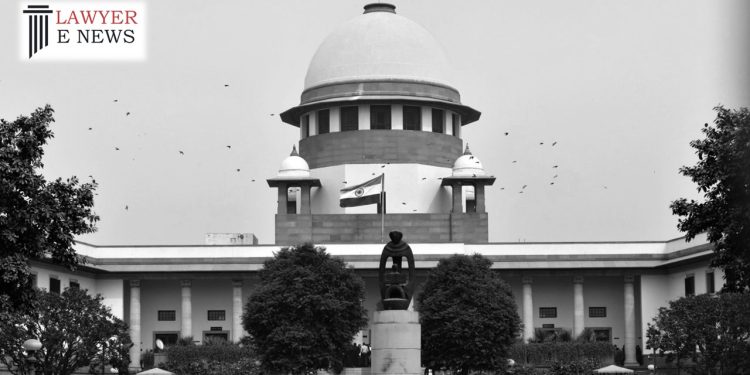Supreme Court Rules that Mutual Interest in Business Essential for Assessing Related Person under Central Excise Act

In a recent judgment, the Supreme Court of India clarified the criteria for determining a “related person” under Section 4(4)(c) of the Central Excise Act, 1944. The court emphasized that mutual interest in the business of each other is a crucial factor in assessing whether parties can be considered related persons for the purpose of determining the assessable value of goods sold.
The judgment was delivered by a bench comprising Justices S. Ravindra Bhat and Dipankar Datta on March 22, 2023. The court set aside an order of the Customs, Excise and Service Tax Appellate Tribunal (CESTAT) and allowed the appeal filed by M/S Bilag Industries P. Ltd. & Anr. against the Commissioner of Cen. Exc. Daman & Anr.
The court observed, “It is essential to attract the applicability of the first part of the definition that the assessee and the person alleged to be a related person must have interest, direct or indirect, in the business of each other. Each of them must have a direct or indirect interest in the business of the other.”
The case involved a dispute regarding the valuation of goods sold by M/s Bilag Industries Ltd. (BIL) to Aventis CropScience (India) Ltd., a subsidiary of AgrEvo SA/Aventis CropScience SA. The revenue authorities treated the transaction as a sale to a “related person” and sought to include additional consideration in the assessable value of the goods.
BIL argued that the transaction was conducted on a principal-to-principal basis and that there was no mutual interest in the business of each other. The Supreme Court agreed with BIL’s contention, noting that both parties must have a mutual interest, directly or indirectly, in each other’s business to be considered related persons under the Act.
The court emphasized that the revenue authorities failed to establish the existence of mutual interest and reciprocity between BIL and Aventis CropScience (India) Ltd. It held that the revenue’s decision to treat the transactions as sales to a “related person” was erroneous and set aside the CESTAT’s order.
The judgment provides clarity on the interpretation of the term “related person” under the Central Excise Act. It highlights the importance of mutual interest in the business of each other and underscores that a unilateral interest or one-way traffic does not establish a relationship as “related persons” for valuation purposes.
This ruling is expected to have significant implications for future cases involving the valuation of goods sold between joint venture partners and subsidiaries. It reaffirms the principle that both parties must have a direct or indirect interest in the business of each other to be considered related persons under the Act.
The Supreme Court’s decision ensures a fair and objective approach to determining the assessable value of goods sold to related parties, providing clarity and certainty to businesses operating under the Central Excise Act.
DATE OF DECISION: March 22, 2023
M/S BILAG INDUSTRIES P. LTD. & ANR. vs COMMR. OF CEN. EXC. DAMAN & ANR.






